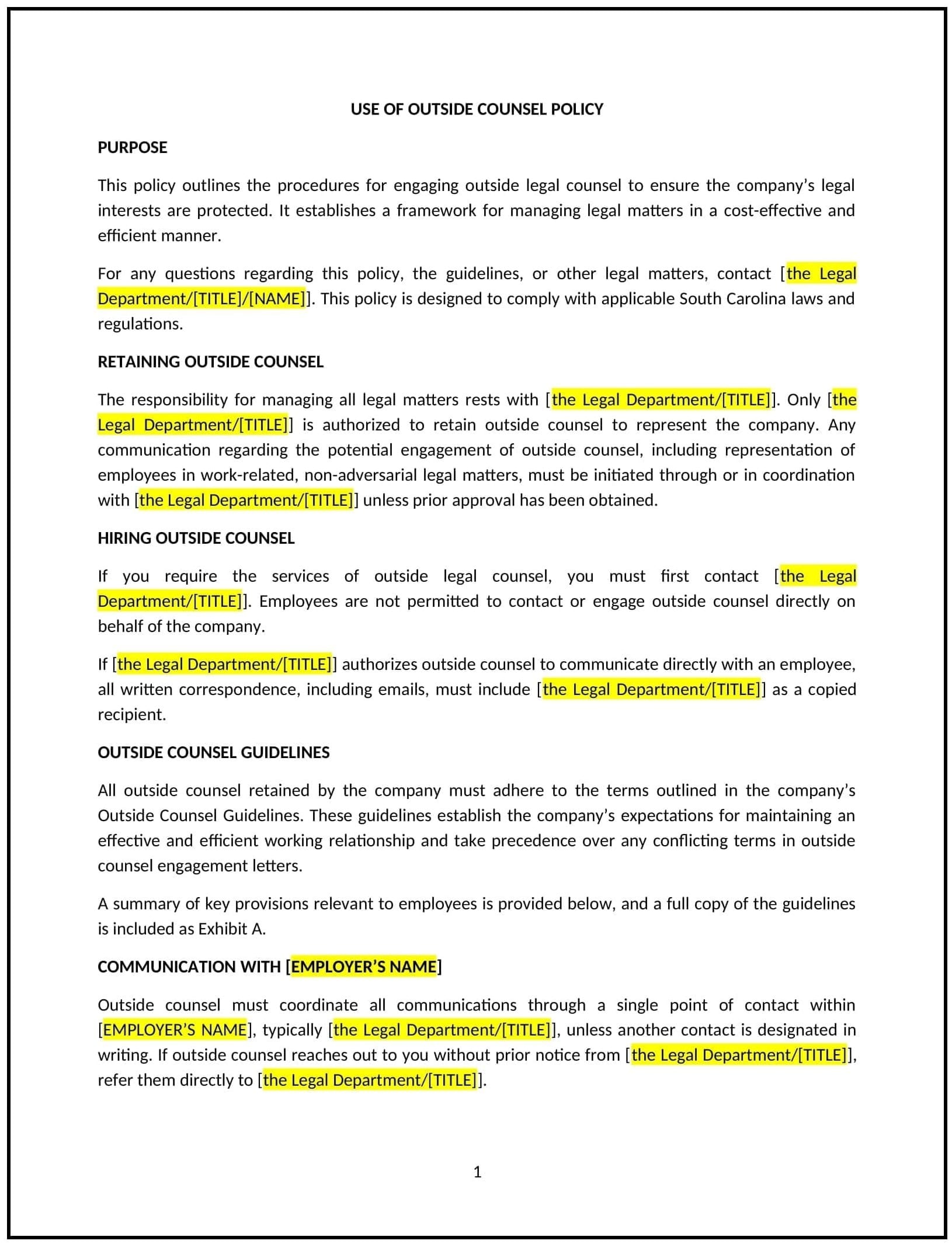Use of outside counsel policy (South Carolina): Free template
Got contracts to review? While you're here for policies, let Cobrief make contract review effortless—start your free review now.

Customize this template for free
Use of outside counsel policy (South Carolina)
This use of outside counsel policy is designed to help South Carolina businesses establish guidelines for engaging external legal counsel to address specific legal matters. It outlines procedures for selecting, managing, and collaborating with outside counsel to ensure effective and cost-efficient legal support.
By adopting this policy, businesses can streamline legal processes, maintain control over legal expenses, and align with general best practices for legal management.
How to use this use of outside counsel policy (South Carolina)
- Define outside counsel: Explain what constitutes outside counsel, such as law firms or independent attorneys hired for specific legal matters.
- Establish selection criteria: Provide guidelines for selecting outside counsel, including expertise, cost, and alignment with business needs.
- Address engagement procedures: Outline steps for engaging outside counsel, including drafting engagement letters and setting clear expectations.
- Set communication protocols: Specify how outside counsel will communicate with the business, including regular updates and reporting.
- Monitor performance: Regularly review the performance and costs of outside counsel to ensure alignment with business objectives.
- Review and update: Assess the policy annually to ensure it aligns with evolving business needs and legal standards.
Benefits of using this use of outside counsel policy (South Carolina)
This policy offers several advantages for South Carolina businesses:
- Streamlines legal processes: Ensures efficient collaboration with outside counsel for specific legal matters.
- Controls legal expenses: Provides a structured approach to managing costs and budgets for external legal services.
- Aligns with best practices: Offers a clear framework for engaging and managing outside counsel.
- Enhances legal outcomes: Ensures that outside counsel delivers high-quality and timely legal support.
- Builds trust: Demonstrates a commitment to effective and transparent legal management.
Tips for using this use of outside counsel policy (South Carolina)
- Communicate the policy: Share the policy with relevant stakeholders and include it in legal agreements.
- Provide training: Educate employees on engaging and managing outside counsel in compliance with the policy.
- Monitor adherence: Regularly review the performance and costs of outside counsel to ensure alignment with the policy.
- Address issues promptly: Take corrective action if outside counsel fails to meet expectations or exceeds budgets.
- Update regularly: Assess the policy annually to ensure it aligns with evolving business needs and legal standards.